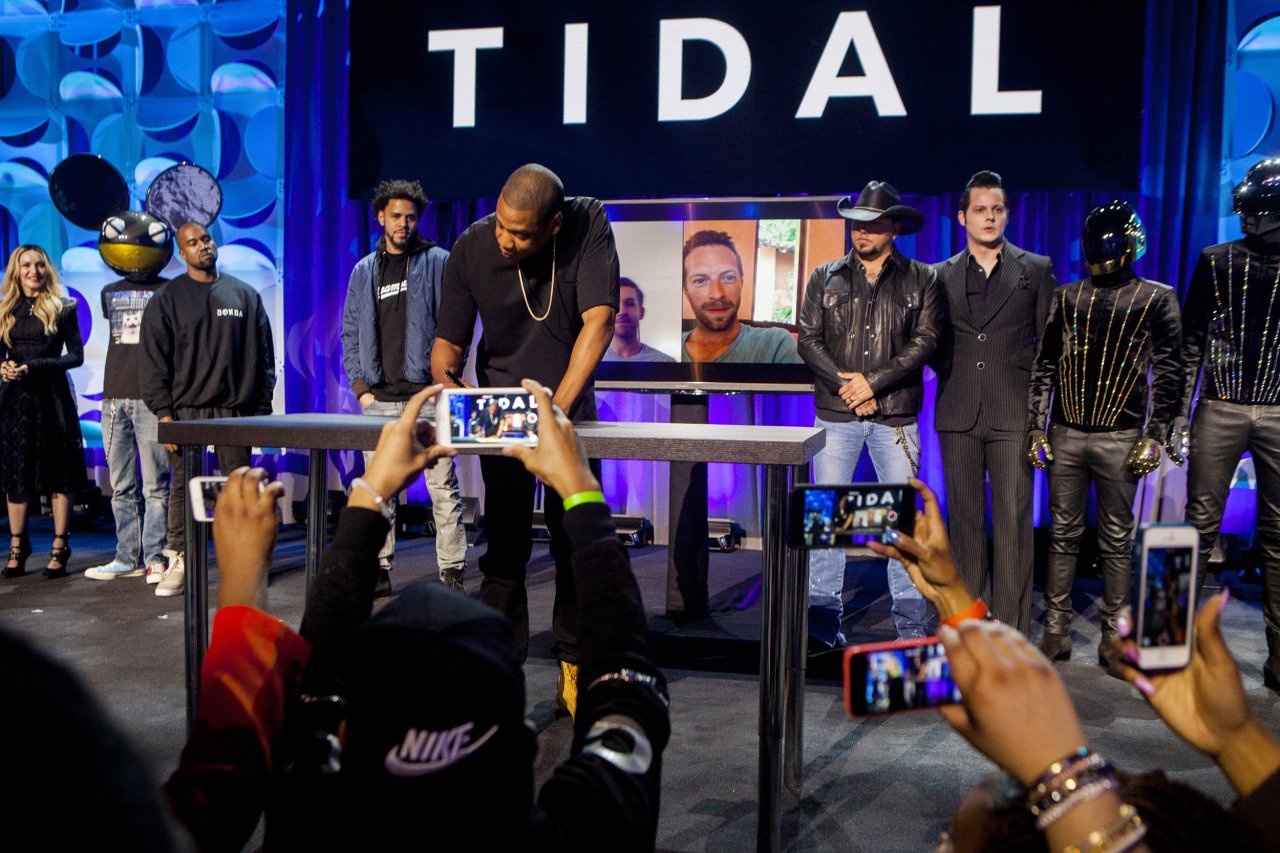Sometime soon, the real streaming music industry will begin. Everything that's happened so far—even the flashy arrival of Jay Z—is just a warmup for the eventual winner.
Streaming music right now looks a lot like the muddled business of search before Google, or the mess in digital music downloads before iTunes. Technology is a winner-take-most business. In almost every thriving tech category, one king emerges and takes most of the economics, whether it's Microsoft in PC operating systems, Amazon.com in online book retailing or Uber in on-demand transportation. Examples abound. Streaming music isn't one of them.
Weirdly, we the people, who by default believe that intense competition is better for everybody, mostly want a single king to emerge. That would give consumers a clear choice—most of us don't really want to sift through 13 "Which Music Service Is Right for You?" stories. We just want to know the best one. A king also gives its business ecosystem a clear choice, whether that means developers, investors, suppliers or partners. The ecosystem doesn't want to work with a half-dozen middling players in a category; it wants to hitch its wagon to the winner.
All this creates a virtual cycle: Users flow toward one company, investors see that and pour in money, the ecosystem comes courting, the company piles up resources that it can invest to get better, which in turn wins it more users...and round and round. Before long, the No. 2 is way behind, and the rest are nearly dead. A study last year by Silicon Valley advisory firm Play Bigger—a study I helped write—found that half of the billion-dollar companies founded since 2000 are category kings that took charge and set the rules.
Look at Uber. Drivers want to work for the company that clearly has the most users, and users want the service with the most cars. By this point, a competitor could easily copy Uber's technology, but it wouldn't matter because Uber has its spiral going. Unseating Uber in its category would be like trying to push Christmas out of December 25.
Sound anti-competitive? Un-American? Don't worry. In the fast-moving technology industry, the biggest threat to the king of a category is the emergence of a whole new competing category. The arrival of smartphones defanged Windows even though no competing PC operating system could (remember OS/2?). At some point, a new kind of search will profoundly hurt Google more than any European Union ruling. And the streaming music category is starting to make iTunes look old.
But not quite yet. Because streaming music doesn't have a king, so no one company can benefit from the positive spiral.
In fact, with no clear leader, the streaming business is a dysfunctional mess. Nobody can make any profits. Growth is slow compared with most hot new technologies. Spotify, the leader of the moment, still reaches only about 14 percent of Internet users after nine years in business. And streaming companies have made a wreck out of the ecosystem around them. While these services depend on great music to attract users, they've set up a business model that crushes the financial incentive for the artists who make that music.
But just because streaming music is like this now doesn't mean a rightful king won't pull Excalibur from the rock and end the dark ages. It's happened before.
Old-timers reading this—anyone over 30—will remember search before Google. There were all sorts of search engines: AltaVista, Lycos, Infoseek, Ask Jeeves, AllTheWeb. None distinguished themselves, made real money or set the pace. And they all worked off a similar idea: Their computers searched the words on webpages to deliver results to users. Those results were mediocre at best and pretty much the same, no matter which engine you chose.
At the end of the 1990s, Google came along with a new idea. It would use the links between pages to rank them, which tended to push higher-quality results to the top. Google wasn't just another search entrant; it created a new category of search that drew power from the very structure of the Internet. And once Google became the clear choice, it infused search into every aspect of online life. Google still has about 68 percent market share in search.
In the early 2000s, Apple showed how this can work in the music industry, proving that the problem with streaming companies isn't a problem with music itself. By the time the iPod and iTunes showed up, people had already been downloading MP3s for free from Napster and Kazaa, and playing the songs on expensive and badly designed digital players. Apple recast the category of music downloads, set the rules, vanquished everyone else and made downloads mainstream. Downloads took hold broadly only after a leader showed up.
Now it's possible that this is the moment Spotify turns into streaming's iTunes. The company just unveiled an innovative ad platform that will crunch data about what people typically are doing when they play certain groups of songs. That way, Gillette might advertise while you're probably shaving, or Trojan can jump in between "Let's Get It On" and "I Want a Little Sugar in My Bowl." Plus, Spotify seems close to raising $400 million. Maybe the platform and cash will help Spotify distance itself from the others, get the positive spiral going and become the king.
But then again, the experience of using Spotify isn't all that much different from most other on-demand streaming services, so there still seems to be room for a new entrant to claim the throne.
Who knows? Maybe that's Jay Z. Either that or Tidal will become his 100th problem.






















